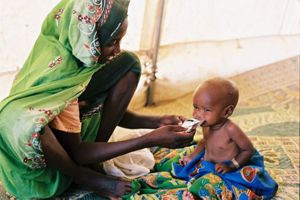Doctors Without Borders Withdraws From Somalia: Violence Too Dangerous, Sixteen Staff Members Killed

After 22 years of medical humanitarian work in Somalia, the international group Doctors Without Borders will be leaving the war-torn country, the organization announced today.
In light of recent killings and attacks on its staff members, the organization has decided to remove its medical and humanitarian workers. Since 1991, sixteen staff members have been killed in Somalia.
French doctors and journalists started Doctors Without Borders, also known as Médecins Sans Frontières (MSF), in 1971. As an independent organization that relies on funding from private, non-governmental donors, MSF aims to be impartial and to not operate on any religious or political agenda.
Though it is an independent organization, it does not hesitate to denounce humanitarian crises, such as the 1995 massacre at Srebrenica, the 2004-2005 crisis in Darfur, and various other devastating situations around the world. In 1999, MSF was awarded a Nobel Peace Prize.
However, the situation in Somalia no longer makes their work possible without risking the lives of their staff members, according to international president Unni Karunakara. Though the country has improved stability since August 2011 when al-Qaeda militants left Mogadishu, the Somali capital, it is still rocked by internal conflict, famine, and droughts.
“In 2011, when the famine was announced, MSF deployed substantial resources to assist the Somali population,” a video released on the Doctors Without Borders website states. “At the end of 2011, two colleagues who were in Mogadishu to provide assistance to this population were shot in cold blood.”
According to the AP, it was a Somali MSF employee whose contract would not be renewed, who shot and killed the two other MSF workers. He was released from prison prematurely.
In October 2011, two other MSF colleagues who were in a refugee camp were abducted and held for 21 months, and only recently released.
“The closure of our activities is a direct result of extreme attacks on our staff in an environment where armed groups and civilian leaders increasingly support, tolerate or condone the killing, assaulting, and abducting of humanitarian aid workers,” Karunakara said.
In 2012, MSF provided outpatient treatment to 624,200 people, treated 30,000 malnourished children, delivered 7,000 infants, and vaccinated up to 60,000 people. With no state hospital in Somalia, it is one of the countries most in need of medical assistance.
First arriving in 1991 after the central government collapsed due to warlords, MSF tenaciously remained in the country even after U.S. soldiers and the UN peacekeepers had left.
“The same actors with whom MSF must negotiate minimum guarantees to respect its medical humanitarian mission have in some cases played a role in the abuses against MSF staff, either through direct involvement or tacit approval, particularly but not exclusively in south central Somalia,” a press release on the Doctors Without Borders website states.
Philippe Lazzarini, a UN humanitarian official for Somalia, told the AP that Somalia is "one of the most volatile and dangerous environments." Karunakara noted with disappointment that the withdrawal would have a cost on hundreds of thousands of people in need.



























